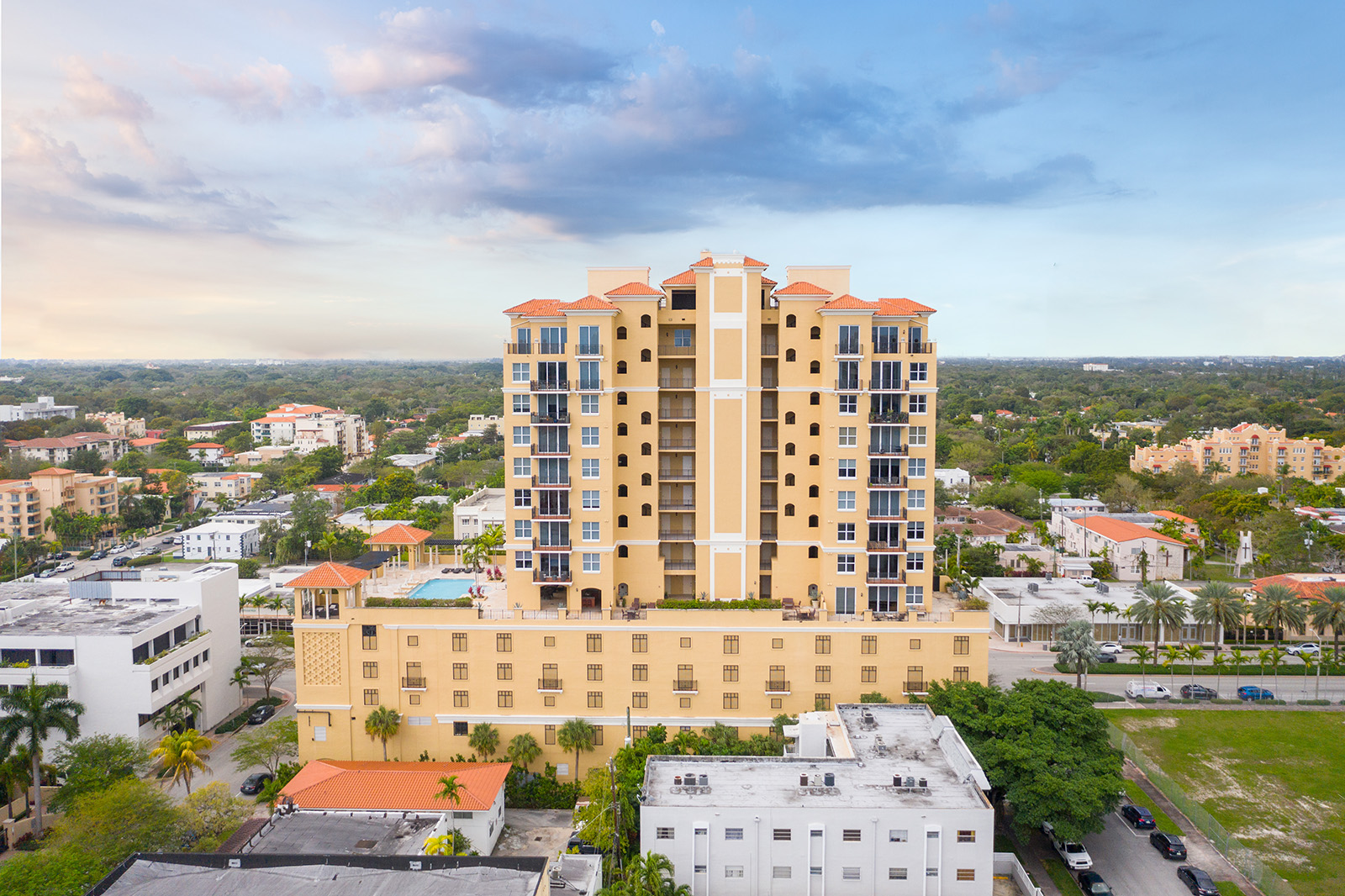
Unlocking the Potential of Roof Coating Systems
By Austen Kessler / Published December 2023

As a commercial property owner or manager, protecting and prolonging the lifespan of your building’s roof is paramount. Roof coatings, often hailed as a cost-effective and sustainable solution, can be a game-changer.
But how well do you understand this roofing maintenance technique? In this comprehensive guide, we’ll delve deep into roof coating systems, answering the most frequently asked questions and equipping you with the knowledge needed to make informed decisions for your commercial property.
1. What Types of Roofs Can Be Coated?
Roof coatings are incredibly versatile and adaptable. They are suitable for all types of roofs, whether your property boasts a new roof, an aging one, or a roof requiring minor repairs and preventive measures.
These coatings can be applied over various roof substrates, including asphalt, built-up roofing (BUR), concrete, ethylene propylene diene monomer (EPDM), metal, polyvinyl chloride (PVC), single-ply membranes, and spray polyurethane foam (SPF), among others. This versatility ensures that you can protect virtually any commercial roof effectively.
2. The Science of Reflectivity: Understanding Highly Reflective Roof Coatings
Highly reflective roof coatings play a pivotal role in enhancing the energy efficiency and longevity of your roof. To determine if a roof coating is highly reflective, three primary measurements come into play:
Solar Reflectance—This measurement assesses the coating’s ability to reflect solar radiation, preventing excessive heat absorption.
Thermal Emittance—This gauges the coating’s ability to emit absorbed heat, ensuring your roof stays cool.
Solar Reflectance Index (SRI)—The SRI calculation combines reflectance and emittance values, indicating the roof’s capacity to resist solar heat. The higher the SRI value, the cooler the temperature inside your commercial building, resulting in reduced cooling costs and a more comfortable indoor environment.
3. Roof Coating Types for Commercial Buildings
When it comes to roof coatings for commercial buildings, several options are available, each with its unique advantages.
Acrylic Coatings—These coatings offer excellent UV protection and weatherproofing, making them a popular choice for commercial properties.
Polyurethane Coatings—Known for their durability and flexibility, polyurethane coatings offer exceptional protection against the elements.
Silicone Coatings—Silicone coatings are highly resistant to UV radiation and can withstand extreme weather conditions, making them a reliable choice for commercial roofs.
4. Application Methods for Roof Coatings
The application of roof coatings involves careful consideration of materials and roof conditions. Different methods are utilized, including the
following:
Brush Application—Suitable for detailed work and precision coating.
Roller Application—Effective for large surface areas and provides a uniform coating.
Spray Application—Ideal for quick and even coverage, especially on large or complex roofs.
The choice of application method depends on the specific needs of your roof, and consulting with a professional commercial roofing contractor is advisable to determine the best approach.
5. The Role of a Roofing Contractor
Is hiring a roofing contractor necessary for applying a roof coating? The answer is a resounding yes, especially for commercial or industrial projects.
Hiring a professional ensures that the coating is applied correctly, adheres to manufacturer specifications, and protects your warranties. Experts bring their extensive experience and knowledge to ensure the longevity and effectiveness of the roof coating system.
6. Coating a New Roof: When and Why
Even on a new roof the application of roof coatings can be advantageous. It provides additional UV protection and waterproofing, safeguarding your investment from the outset. Highly reflective coatings are particularly valuable for new roofs as they shield the roof’s surface from premature aging, sun damage, and excessive heat.
Roof coating systems also offer comprehensive coverage of seams and joints, resulting in a smooth, robust, and long-lasting roof.
7. Restoring Aging Roofs with Roof Coatings
Professional roof coating installations have been proven to save commercial property owners from costly and time-consuming roof tear-offs and replacements. For over 30 years roof coatings have been revitalizing aging and failing roofs, effectively addressing issues such as leaks, blisters, alligatoring, adhesion problems, joint and seam tears, and more.
By rejuvenating your roof with a coating system, you can extend its lifespan and avoid the financial burden of a full replacement.
8. Lifespan of Roof Coatings
Roof coatings are designed to be durable and long-lasting, with a typical lifespan ranging from 10 to 20 years. The exact duration depends on factors such as the type of coating used and proper maintenance.
To ensure the continued protection of your commercial property, roof coatings can be reapplied every 10–15 years. This practice offers a genuinely sustainable roofing solution, significantly extending the time before a roof replacement becomes necessary.
9. The Significant Benefits of Roof Coatings
Roof coatings offer commercial property owners and managers a plethora of advantages:
Cost-Effective Solution—Roof coatings represent a cost-effective alternative to traditional roof replacements, saving you money in the long run.
Seamless and Weatherproof—Coatings create a seamless, watertight, and flexible surface that protects against the elements.
Sustainability—Regular
recoating extends the roof’s life and delays tear-offs, contributing to a sustainable future.
Minimal Disruption—Roof coating installation is typically nondisruptive to building occupants, ensuring minimal inconvenience.
Increased Reflectivity— Enhanced reflectivity reduces energy and cooling costs while prolonging the roof’s life cycle.
Here To Help
In the world of commercial roofing, knowledge is power. Armed with the information provided in this comprehensive guide, you’re now better equipped to make informed decisions regarding roof coatings for your valuable commercial
properties.
Roof coatings have the potential to revolutionize your approach to roofing maintenance, saving you money, extending your roof’s lifespan, and contributing to a more sustainable future. n



